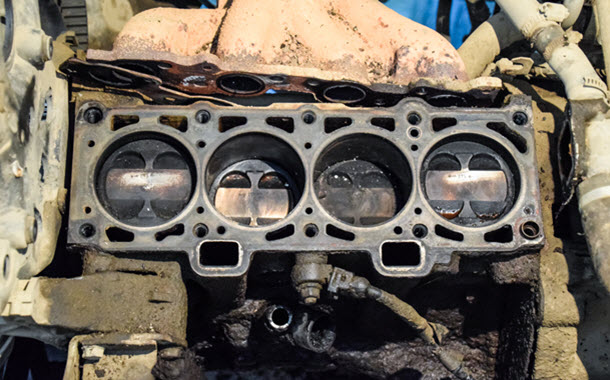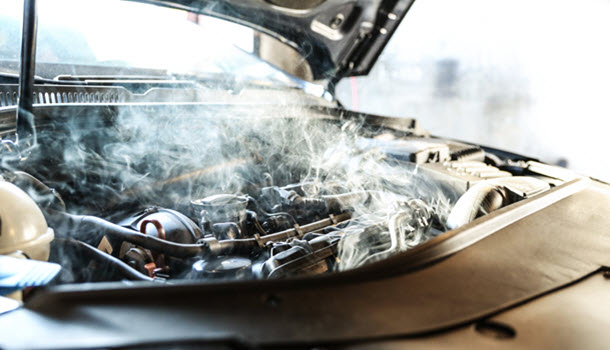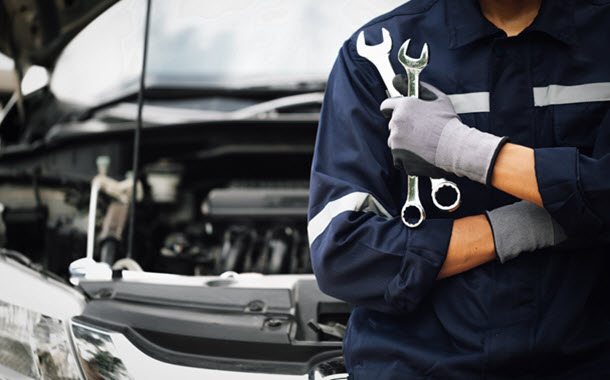Quickly Identify Your Land Rover’s Head Gasket Leaks
Posted on | 23 Sep 2023 By Anita Gaal
A leaking head gasket in your Land Rover can be a troublesome issue that, if left unattended, can have significant repercussions for your SUV’s performance. The head gasket is a critical component that seals the gap between the engine block and the cylinder head, ensuring that combustion gases, coolant, and oil remain separate and contained within their respective pathways. When this gasket begins to leak, it can lead to a cascade of problems that affect your Land Rover’s engine and overall functionality.
How to Know When There is a Leak in Your Head Gasket
Overheating
Engine overheating is a telltale sign of a head gasket leak. If your Land Rover’s temperature gauge consistently registers higher than normal, it may indicate a coolant leak caused by a compromised head gasket. The head gasket’s role in sealing the combustion chamber and preventing coolant from mixing with engine oil is critical for maintaining the engine’s operating temperature.
White Smoke from the Exhaust
When you start your Land Rover and notice white smoke billowing from the exhaust pipe, especially in cold weather, it could be a sign of coolant entering the combustion chamber. This coolant evaporates as steam and is expelled through the exhaust, creating the distinctive white smoke.
Low Coolant Levels
Regularly check your coolant reservoir. A head gasket leak can result in a gradual loss of coolant. If you find yourself constantly topping off the coolant, it’s a clear indication that something is amiss. Be cautious not to ignore this warning sign, as running low on coolant can lead to overheating and further engine damage.
Milky Oil
When coolant mixes with engine oil, it creates a milky or frothy substance. You can spot this by checking the oil dipstick or looking under the oil cap. A milky appearance of the engine oil is a definitive indicator of a head gasket leak, as it signifies the contamination of oil with coolant.
Bubbling in the Radiator
A head gasket leak can introduce air into the cooling system. This can cause bubbling or gurgling in the radiator when the engine is running. Keep an eye on the radiator and listen for these unusual sounds, as they suggest a problem within the cooling system that requires immediate attention.
Loss of Engine Power
If you experience a sudden loss of power or notice a drop in acceleration, a head gasket leak could be affecting engine compression. When the head gasket fails, it can disrupt the combustion process, resulting in reduced engine performance. This symptom may accompany other signs, such as overheating or unusual exhaust smoke.
Typical Reasons for Head Gasket Leaks
- Improper Installation: A head gasket must be installed correctly, with the proper orientation and sealing techniques. Any mistakes during installation can result in a compromised gasket and eventual leakage.
- Cylinder Head Warping: Overheating or extreme temperature fluctuations can cause the cylinder head to warp. When this happens, it may no longer create a proper seal with the head gasket, leading to leaks.
- Excessive Pressure: An unusually high level of pressure in the combustion chamber, often due to detonation or pre-ignition, can place additional stress on the head gasket, potentially causing it to fail.
- Lack of Maintenance: Neglecting regular maintenance, such as coolant changes and inspections, can contribute to head gasket problems. Old or contaminated coolant can corrode the gasket and reduce its effectiveness.
Easy Steps to Pinpoint a Head Gasket Leak
Start with a visual inspection of the engine bay. Look for any obvious signs of coolant or oil leaks around the cylinder head and engine block. Pay close attention to wet or discolored areas, which may indicate the presence of a leak. Also, monitor the coolant level in the reservoir. If there’s a sudden drop, then there might be a leak somewhere. If you cannot detect these issues yourself, take your SUV to a competent mechanic.

Trust Euro Automotive with Expert Head Gasket Leak Detection and Prevention
At Euro Automotive, we are a reliable repair shop when it comes to identifying and addressing head gasket leaks in Land Rovers. Our team of experienced professionals is dedicated to helping you prevent and mitigate these issues, ensuring the longevity of your vehicle. Serving drivers from Dallas, Garland, Arlington, Fort Worth, TX, we take pride in providing top-notch automotive services. Don’t allow a minor issue like a head gasket leak to become a major problem. Give us a call now, and let us help you ensure a smooth and trouble-free driving experience.















